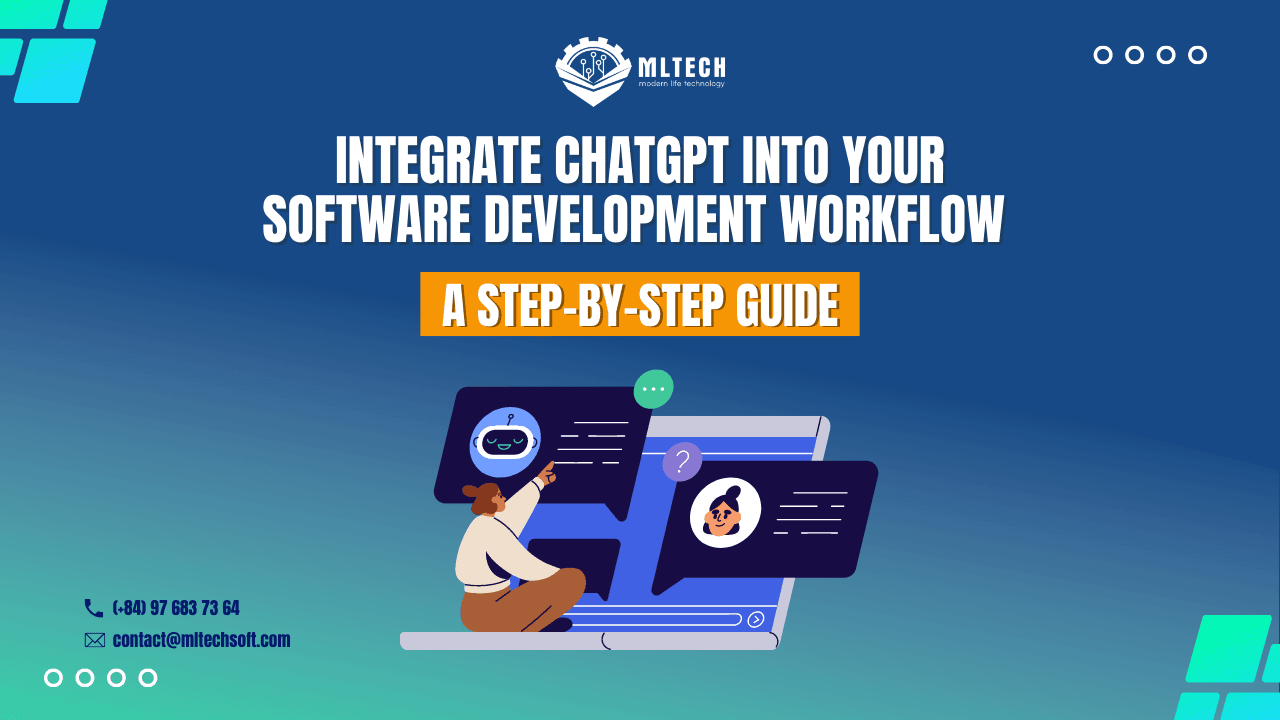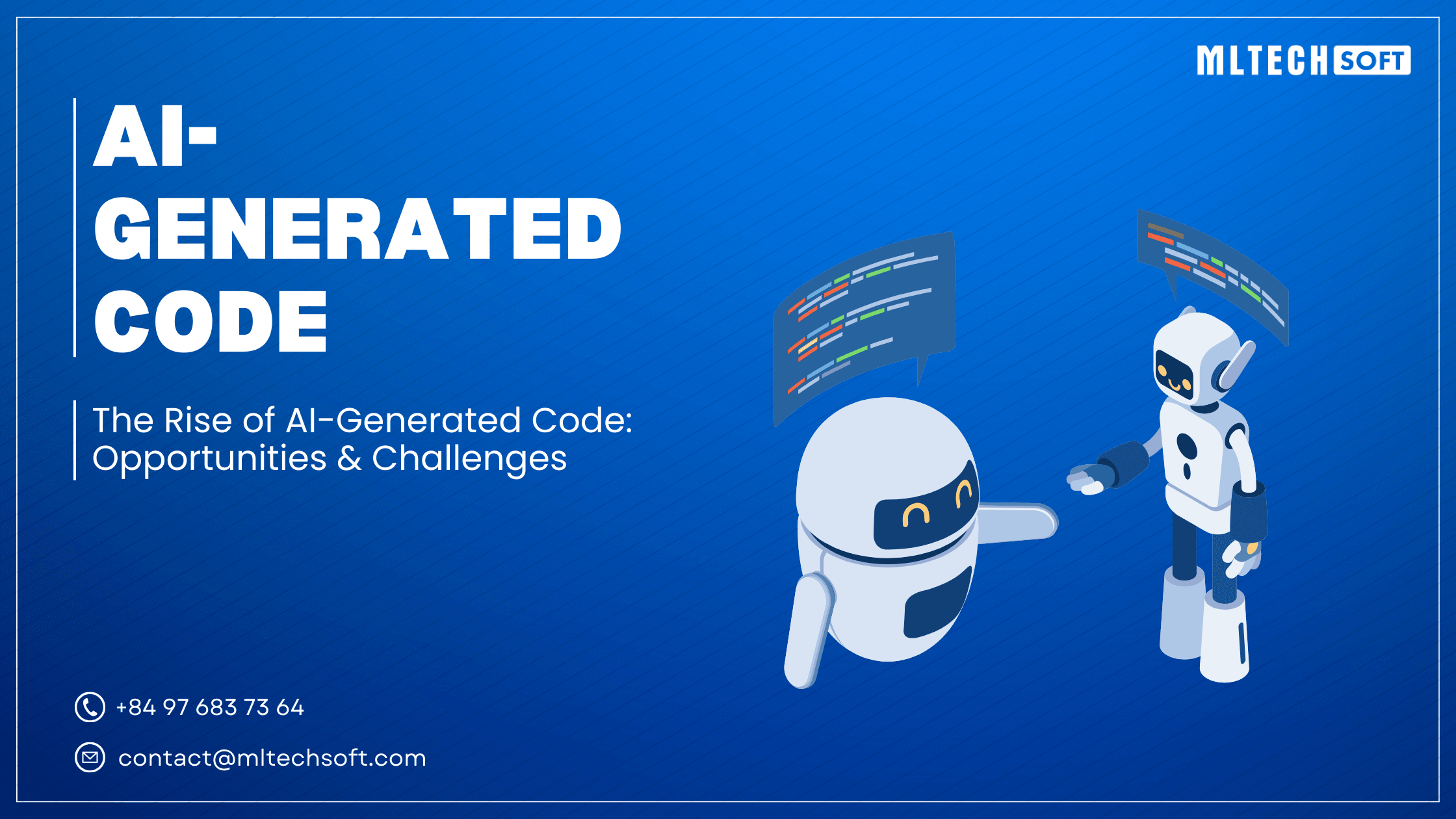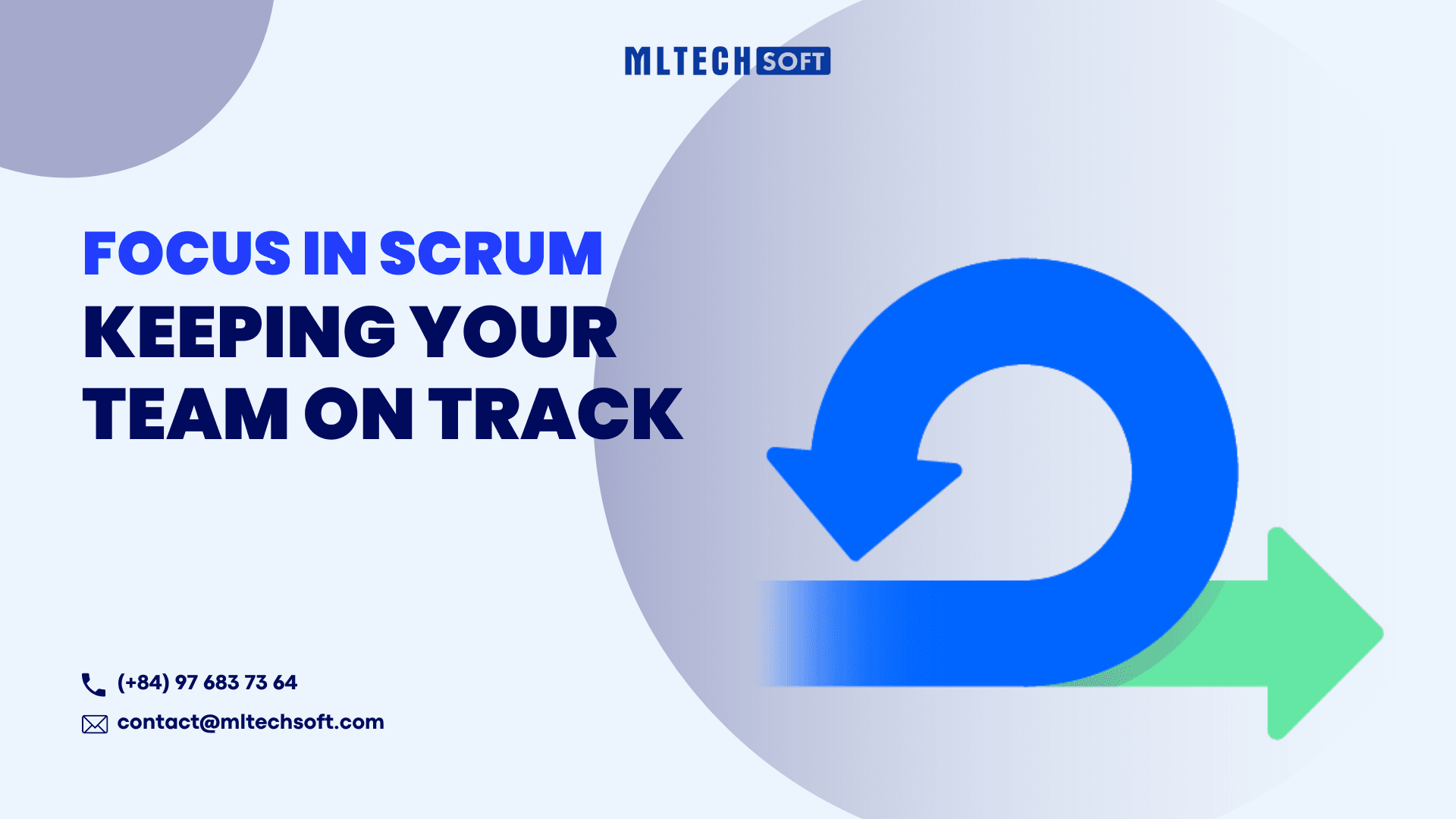Scroll down for more
Integrate ChatGPT into your software development workflow: a step-by-step guide

The agile estimation method is difficult for all information software development processes. It requires a financial perspective, projections for future quarters, and resource allocation for each iteration.
Using ChatGPT as a code reviewer or pair programmer can help developers save time and effort. They can avoid repetitive work, solve design problems, or understand complex code. ChatGPT also increases productivity and improves code quality. So that drives the development and release processes.
In this article, we'll cover 8 tricky tips every developer should know when integrating ChatGPT into their development workflow.

1. Technology stack comparison
Choosing the right tech stack can take time and effort when starting a new project. In most cases, developers should evaluate language, customizability, long-term support, and limitations.
We usually do secondary research and compare different tools based on our own experience and Google searches. Sometimes, we develop proofs of concepts (PoCs) to evaluate different tools, frameworks, and combinations. However, this is very time-consuming as it relies on manual work.
Luckily, ChatGPT excels at evaluating tech stacks. You can outsource your stack evaluation to ChatGPT and have them create a POC for you! All you have to do is
- Give ChatGPT the scenario you're trying to create and the tools you have in mind.
- Ask ChatGPT to compile a PoC and include all necessary steps to replicate locally.
- ChatGPT will do the rest! Here's a short scene where we asked ChatGPT to help us choose between two front-end technology options for interacting with our API.

2. Producing boilerplate code
Developers often write the same boilerplate code for each new project. With the same tech stack, most work is iterative with minor changes. Instead of doing this manually, you can ask ChatGPT to compile boilerplate code.
For example, here's a scenario where you can ask ChatGPT to initialize the Express API to save you the effort of building the base code. You can modify this code to match your specific needs or ask ChatGPT for some of these changes.
3. Comprehend a difficult code
Sometimes, developers work on very complex projects, making the code hard to understand. You usually spend hours trying to figure out what the code means on your own or finding the writer of the code for a detailed explanation. This time-consuming process may negatively impact productivity.

Now you can justify the code with ChatGPT. Just upload your code and ask how it works. ChatGPT will give you a detailed explanation.
4. Algorithm implementation
Suppose you are developing a complex algorithm to solve a problem. You spend time on the drawing board, thinking about your approach and tweaking it from different angles.
Now you can think of ChatGPT as part of your process and use it to put together the best algorithm.
ChatGPT uses a tree-based algorithm to achieve optimal temporal and spatial search. It helps developers find the best solution. Outsource to ChatGPT and focus your time on developing your requirements.

5. Create complicated regexes
Regular expressions can be very complex and difficult. But you can now ask ChatGPT to make a regular expression and explain how it should be used. For example, ChatGPT can give you a regular expression to check the format of a Sri Lankan ID card.
ChatGPT also creates a regular expression in seconds. But it takes more than 30 minutes for people who don't know how to use regular expressions. Anyway, this improves development efficiency and saves developer time.

6. Code optimization and refactoring
Developers don't always need to write the most readable and concise code. When peer reviewers suggest ways to improve the code, you should work with them to make it better.
Now you can use ChatGPT to review your code before submitting it for peer review. It looks at your code and suggests ways to optimize or refactor it. It is better than what a typical static analyzer can do.
7. Creating test cases
Writing test cases has become a standard step in the development lifecycle. But it takes skill and work to make a good set of test cases that cover enough ground. Most of the time, you should cover at least 80% of your code to make sure your function works.
The biggest challenge with unit tests is that it takes time to write them. ChatGPT can save you time and generate test cases covering up to 100% of your code.
Publish your function to ChatGPT and ask, "Please compile a test case that covers this code 100%." You can quickly get great test cases to ensure your code is 100% testable.

ChatGPT lets you make test cases faster and cover more areas that you might have missed otherwise.
8. Creating code documentation
Writing documentation is a good practice for maintainability. It improves code readability and shows meaningful autocomplete information. For example, it shows parameter and return value details when calling a function.
Now ChatGPT can help you provide complete functional documentation for your code. You need to give them a snippet of your code and ask them to generate the documentation. ChatGPT generates code documentation quickly, so you can focus on other things.
Finishing up
AI should be encouraged, not feared, in software development. If you've never used ChatGPT before, we recommend that you sign up and add it to your daily development workflow. It increases development efficiency and even allows you to learn new things.
Get our blog
Want the latest and greatest from our blog straight to your inbox? Chunk us your details and get a sweet weekly email.
Read more in our blog

Project Management
The Rise of AI-Generated Code: Opportunities & ChallengesExplore how AI-generated code is transforming programming with tools like GitHub Copilot and AlphaCode. Learn about the opportunities it offers—faster development, accessibility—and the challenges like security and ethics we must address.

Project Management
The Impact of Dynamic Pricing on Customer BehaviorExplore the impact of dynamic pricing on customer behavior and learn how to implement effective pricing strategies.

Project Management
Focus in Scrum: Keeping Your Team on TrackDiscover effective strategies to maintain focus within your Scrum team, overcome common challenges, and boost productivity.
MLTECH SOFT